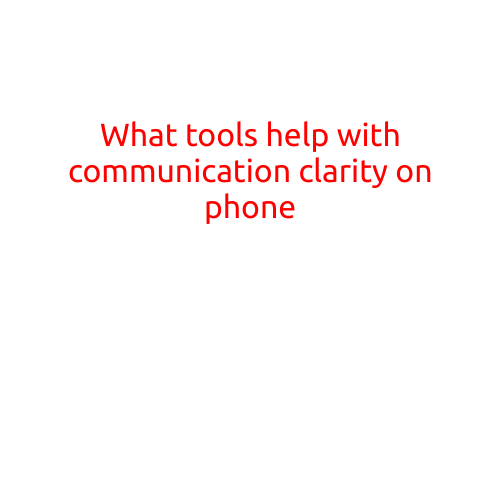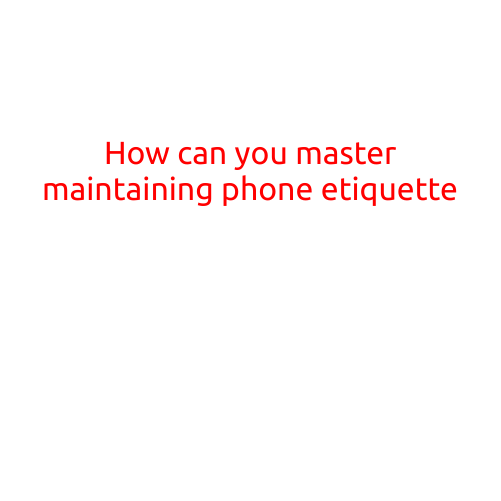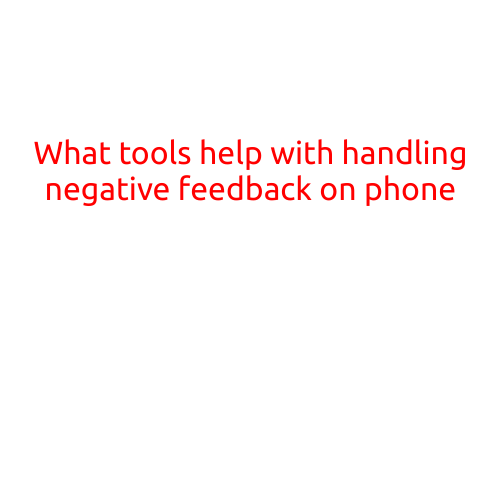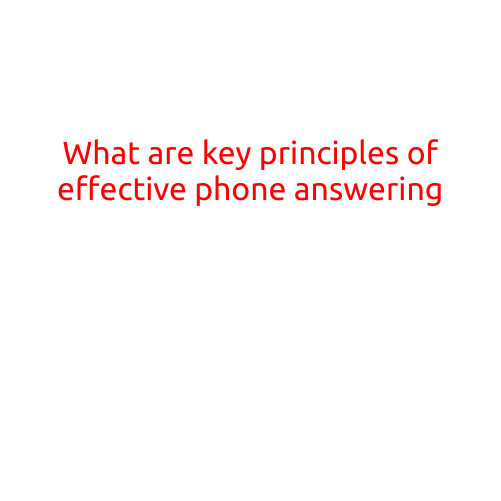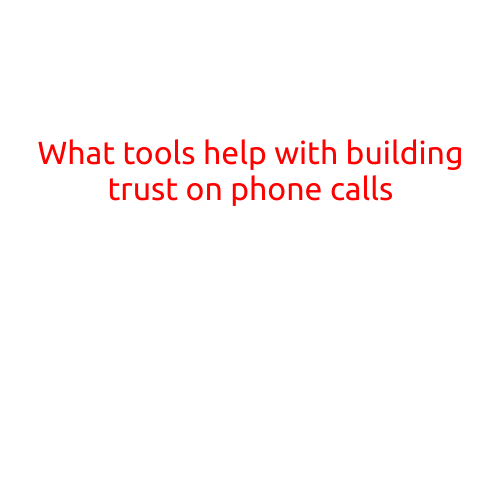
What Tools Help with Building Trust on Phone Calls?
Building trust over the phone can be a crucial step in establishing a strong relationship with clients, customers, or colleagues. When you’re on a call, you only have a few minutes to make a good impression, demonstrate your expertise, and establish trust. Unfortunately, building trust on a phone call can be challenging, especially when you’re not face-to-face. However, there are several tools and techniques that can help.
Active Listening
Active listening is the foundation of building trust on a phone call. When you actively listen to the other person, you show that you’re fully engaged in the conversation and care about what they have to say. This can be achieved by:
- Maintaining eye contact (even if you’re not face-to-face) by focusing on the speaker
- Avoiding interruptions and letting the speaker finish their thoughts
- Paraphrasing and summarizing what the speaker has said to show understanding
- Asking open-ended questions to encourage the speaker to share more
Pre-Call Research
Before making a phone call, it’s essential to do some research on the person you’re about to call. This will help you:
- Understand their needs and pain points
- Prepare thoughtful questions to ask
- Show your expertise by referencing specific issues or topics they’re interested in
- Build rapport by mentioning shared experiences or interests
Notes and References
Taking notes during a phone call can be helpful in several ways. It:
- Shows that you’re interested in what the speaker has to say
- Helps you remember important details and follow up on key points
- Allows you to reference specific information or statistics to add credibility to your conversation
Visual Aids
While you can’t see each other’s faces on a phone call, you can still use visual aids to help build trust. For example:
- Use a whiteboard or sticky notes to jot down key points or action items
- Share relevant documents or images to illustrate a point
- Use a video conferencing platform to include visual cues and nonverbal communication
Tone and Language
Your tone and language can also play a significant role in building trust on a phone call. Be sure to:
- Speak clearly and confidently
- Use a friendly and approachable tone
- Avoid jargon or overly technical language that might confuse the speaker
- Show empathy and understanding by using emotional intelligence
Follow-Up
After the phone call, it’s essential to follow up with any agreed-upon next steps or tasks. This shows that you’re committed to your word and helps to build trust:
- Send a summary of your conversation to the speaker
- Confirm any agreements or action items
- Respond promptly to any questions or concerns
Conclusion
Building trust on a phone call requires preparation, active listening, and a focus on clear communication. By using these tools and techniques, you can establish a strong foundation for your relationship and set yourself up for success. Remember to always prioritize building trust and rapport, as these are the keys to long-term success in any phone call.
